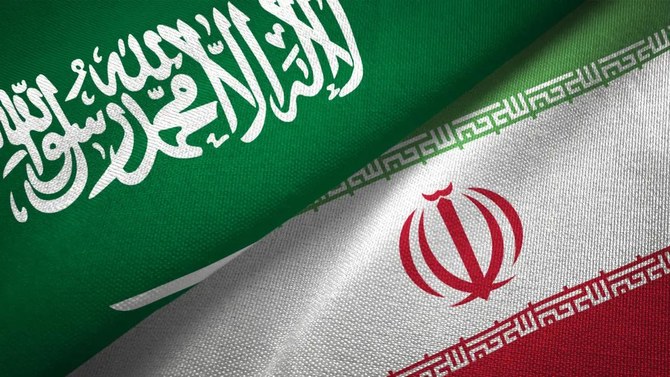
- ARAB NEWS
- 05 Jul 2025

Much talk and analysis has been generated by last week’s surprise Chinese-brokered Saudi-Iranian pact, but pundits need to remember that the agreement to restore diplomatic ties and refrain from intervention in each other’s affairs is still in its early days. We cannot expect four decades of Iranian hostility and investment in undermining regional security to disappear overnight.
Nevertheless, it would have been irresponsible and illogical for the Saudi leadership not to give peace a chance. They have much more at stake in this conflict than the leadership in Tehran. If Iran wants to remain in 1979, that is their leadership’s choice. In this country our leadership has Vision 2030, and we aim to diversify our economy, open up new sectors, welcome tourists, and host world-class sporting and entertainment events; we can absolutely do without daily threats from an annoying neighbor.
What has emerged over the past few days is reassuring. Iran’s Foreign Ministry has said that positive vibes with Riyadh could lead to a solution in Yemen, from where the Tehran-backed Houthi militia target Saudi civilians and cities. That is welcome news.
Sources tell me that the Chinese initiative was ignited during President Xi’s visit to the Kingdom last December. So Beijing deserves credit not just for pulling this off, but for pulling it off in a record three months — a testimony to Chinese efficiency.
Beijing deserves credit not just for pulling this off, but for pulling it off in a record three months — a testimony to Chinese efficiency.
Faisal J. Abbas
I am told that a conversation took place at leadership level in which it was clearly outlined how Iran’s malign activity is threatening China’s national security and other interests. Saudi Arabia exports over 1.7 million barrels of oil a day to China, which is crucial for China to continue functioning and manufacturing. When Iran or its militias strike Saudi oil infrastructure, China is affected too. When Iranian actions threaten maritime security, China can’t receive the oil it needs and its products can’t reach their huge markets in the Middle East.
There is another wasted opportunity for Chinese exports and its Belt and Road Initiative. Imagine if Syria, Lebanon, Iraq and Yemen were actively consuming Chinese products. Instead they are dysfunctional, failed states — thanks entirely to Iranian meddling.
As noted here before, China also enjoys a neutral position in the region, with no colonial past or history of aggression. In most Middle East conflicts, Beijing has remained neutral and focused its policies on trade and commerce.
In terms of leverage over Iran, if anyone has that it is China. Beijing has pledged to invest $400 billion in Iran over 25 years, including $280 billion in oil and gas development. China is Iran’s biggest trade partner, and exports nuclear and military technology there. In guaranteeing this agreement Beijing has put a lot at stake in terms of its image as a global superpower, but it also has a lot to gain in credit if the Iranians play ball and stick to the deal.
The question is, will they? The short answer is, time will tell. The long answer is that while the optimist in me would love to see this happen, along with an end to Tehran-backed malign activities in places such as Iraq, Lebanon and Syria, the realist in me has to say that Iran’s track record of adhering to agreements is not reassuring. That is why it makes sense, as has emerged in the past few days, that officials in Riyadh took much longer than those in Tehran to be convinced about the deal.
Armchair experts in Washington need reminding that if this deal sticks and progresses, it would actually serve American interests.
Faisal J. Abbas
What I don’t get, however, is the skepticism and negativity of some US pundits. These armchair experts in Washington need reminding that if this deal sticks and progresses, it would actually serve American interests. Just think of maritime security in the Red Sea and the Gulf, think of how much it will reduce the cost of American security and military operations, and how many markets it would open up for US manufacturing and jobs.
These skeptics appear to have forgotten that it was Barack Obama — like Joe Biden, a Democrat president — who simplistically said in his notorious 2016 interview with The Atlantic magazine that Saudi Arabia and Iran must learn to “share the neighborhood.” So Riyadh is damned if it listens to US advice, and damned if it doesn’t.
But that genuinely doesn’t matter. For this potentially groundbreaking pact to be successful, and given the positive impact it could have on not just this region but the whole world, the US and the rest of the international community must support it in every way possible. And if it is successful, then credit must be given to the leadership in Riyadh for skilfully playing its cards and implementing the advice of the great Chinese strategist Sun Tzu in The Art of War: “To subdue the enemy without fighting is the acme of skill.”
• Faisal J. Abbas is the editor in chief of Arab News
Twitter: @FaisalJAbbas